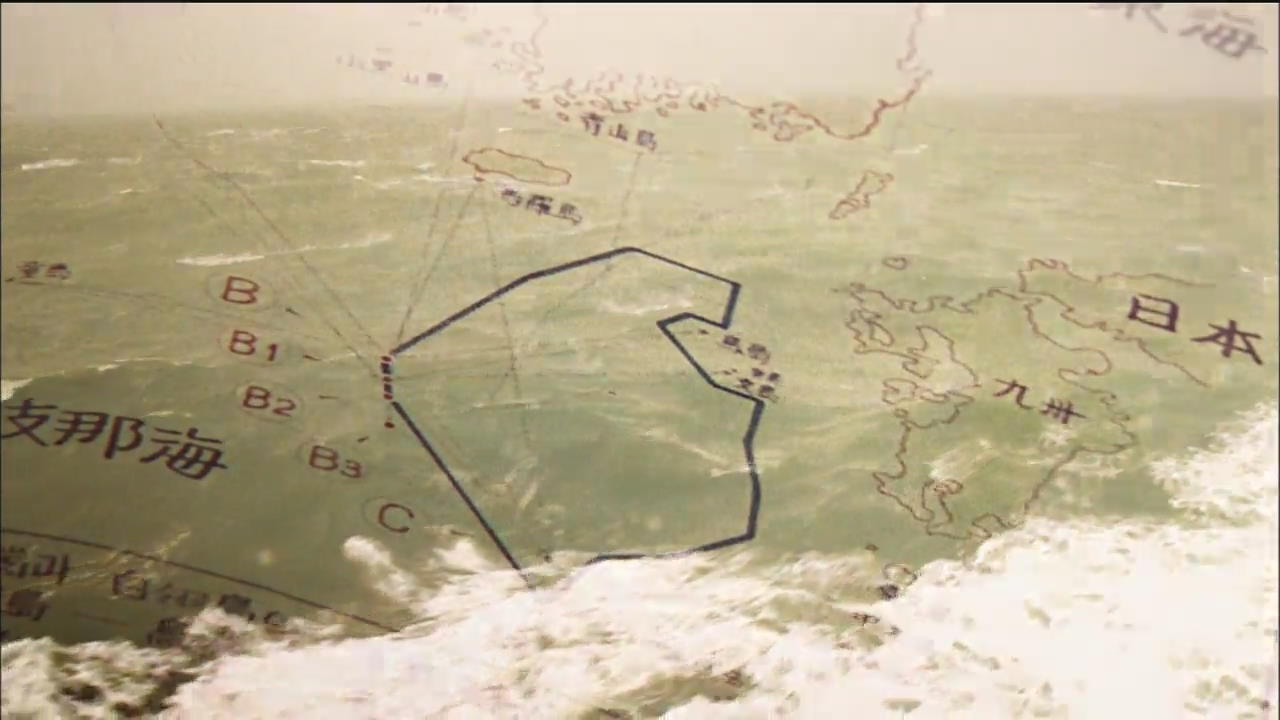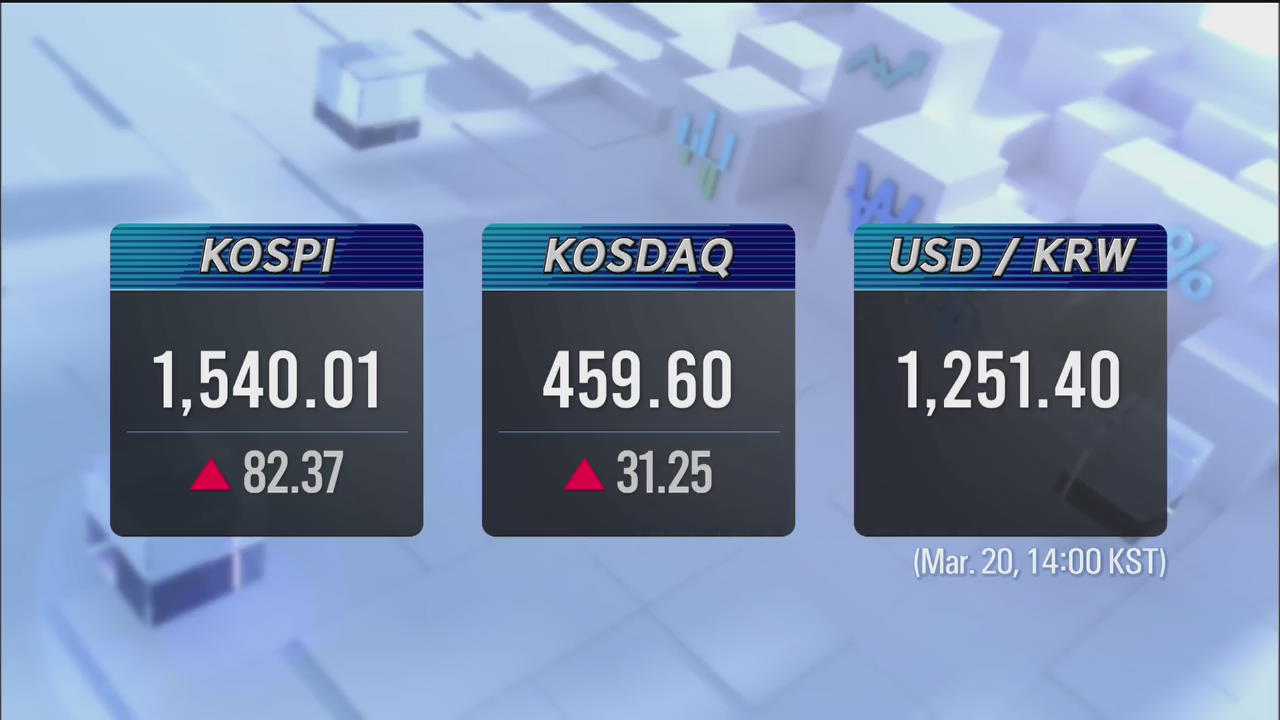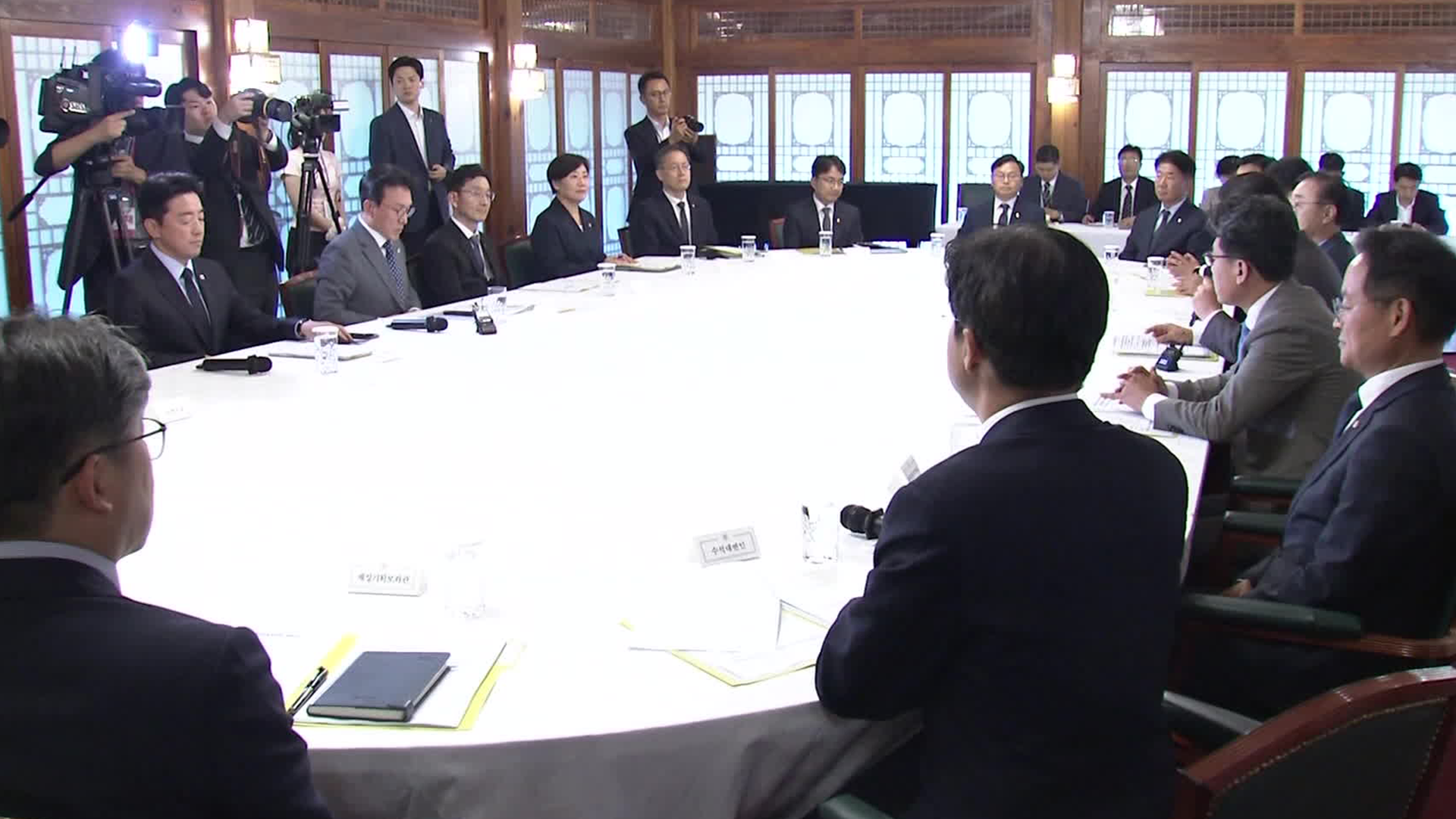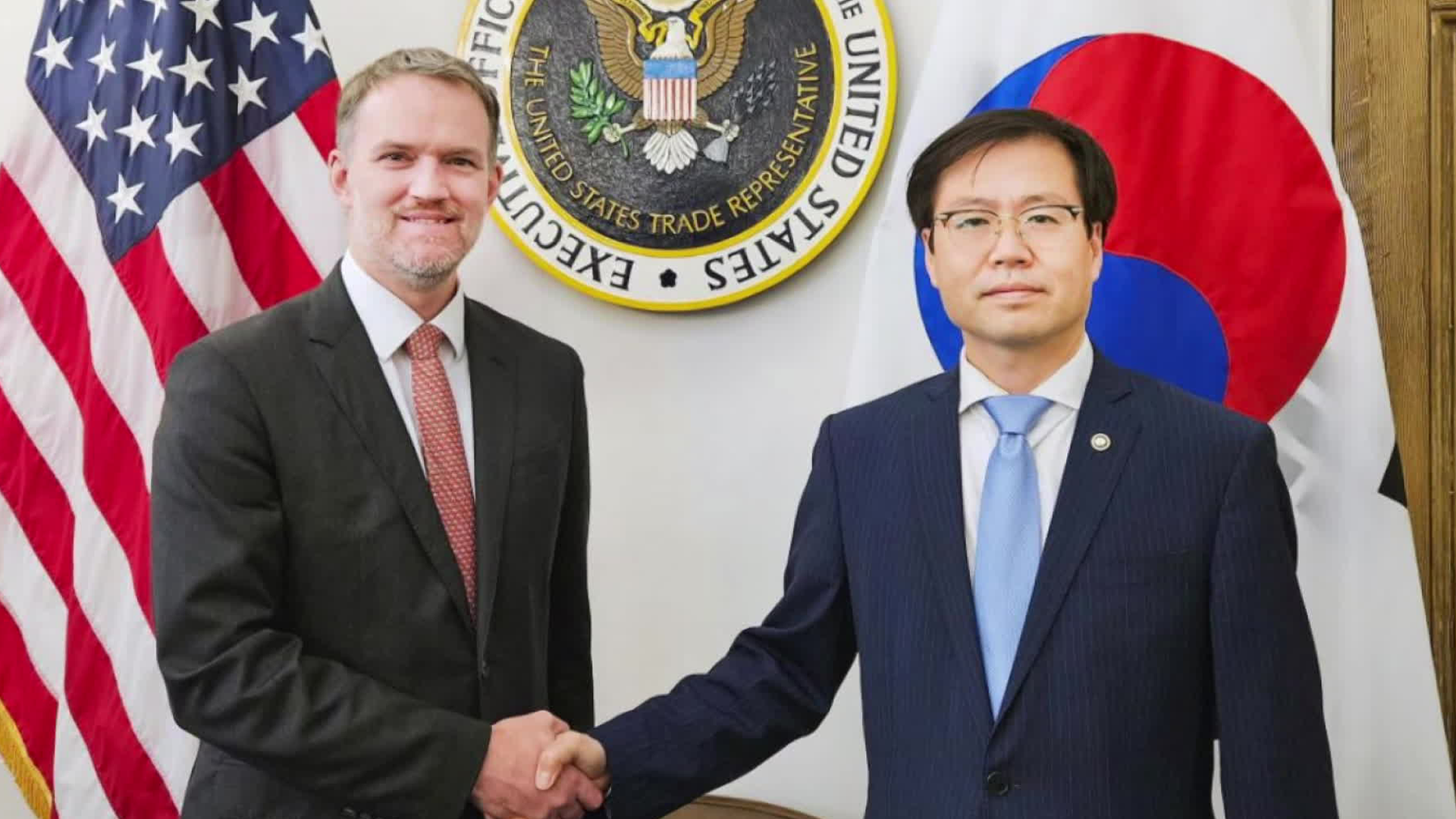DEVELOPMENT PLANS OF NEGLECTED SITE
입력 2020.03.20 (15:15)
수정 2020.03.20 (16:47)
읽어주기 기능은 크롬기반의
브라우저에서만 사용하실 수 있습니다.
[Anchor Lead]
There is a plot of Korean maritime territory, a continental shelf called the Seventh Mining Block which raised hopes in the early 1980s about Korea possibly becoming an oil producing nation. The mining area has been left neglected, bound by a joint development treaty with Japan. But after 34 years, the Korean government is giving the project another go.
[Pkg]
The Ministry of Trade, Industry and Energy will push for the development of the underwater continental shelf known as the Block Seven Mining Area. In early January, the minisry selected the Korea National Oil Corporation as the developer.
[Soundbite] IM BO-SEONG(KNOC) : "We believe the project has high potential and also obtained mining rights."
According to a probe conducted by a global authority on seabed exploration in 1968, the Seventh Mining Block might be the richest reserve of oil resources in the world. However, after a joint development deal was signed with Japan, the country refused to develop the area. For this reason, all exploration and development activities were completely halted for the last 34 years.
[Soundbite] CHOI JI-HYEON(KOREA MARITIME INSTITUTE) : "Japan's intentions are about taking as much continental shelf for its own, and less about economic feasibility."
Once the treaty with Tokyo expires in 2028, more than 90 percent of the mining block is likely to fall under Japan's ownership. This is because dominium rights related to continental shelves changed in favor of Japan when the UN Convention on the Law of the Sea was adopted in 1982.
[Soundbite] IM HAN-TAEK(EX-OFFICIAL, FOREIGN MINISTRY TREATIES BUREAU) : "Japan may think they have a stronger legal case and time is on their side."
Last month, Seoul's Foreign Ministry notified Japan of Korea's decision to develop the Seventh Mining Block. Tokyo's consent is required under the joint treaty, but Japan has yet to respond. KBS asked Japan's Foreign Ministry regarding its stance on the issue but an interview was declined. The ministry claims to have no answer to give at the moment. With just 8 years left before the joint treaty expires, the South Korean government believes this could be the last chance to develop the continental shelf.
There is a plot of Korean maritime territory, a continental shelf called the Seventh Mining Block which raised hopes in the early 1980s about Korea possibly becoming an oil producing nation. The mining area has been left neglected, bound by a joint development treaty with Japan. But after 34 years, the Korean government is giving the project another go.
[Pkg]
The Ministry of Trade, Industry and Energy will push for the development of the underwater continental shelf known as the Block Seven Mining Area. In early January, the minisry selected the Korea National Oil Corporation as the developer.
[Soundbite] IM BO-SEONG(KNOC) : "We believe the project has high potential and also obtained mining rights."
According to a probe conducted by a global authority on seabed exploration in 1968, the Seventh Mining Block might be the richest reserve of oil resources in the world. However, after a joint development deal was signed with Japan, the country refused to develop the area. For this reason, all exploration and development activities were completely halted for the last 34 years.
[Soundbite] CHOI JI-HYEON(KOREA MARITIME INSTITUTE) : "Japan's intentions are about taking as much continental shelf for its own, and less about economic feasibility."
Once the treaty with Tokyo expires in 2028, more than 90 percent of the mining block is likely to fall under Japan's ownership. This is because dominium rights related to continental shelves changed in favor of Japan when the UN Convention on the Law of the Sea was adopted in 1982.
[Soundbite] IM HAN-TAEK(EX-OFFICIAL, FOREIGN MINISTRY TREATIES BUREAU) : "Japan may think they have a stronger legal case and time is on their side."
Last month, Seoul's Foreign Ministry notified Japan of Korea's decision to develop the Seventh Mining Block. Tokyo's consent is required under the joint treaty, but Japan has yet to respond. KBS asked Japan's Foreign Ministry regarding its stance on the issue but an interview was declined. The ministry claims to have no answer to give at the moment. With just 8 years left before the joint treaty expires, the South Korean government believes this could be the last chance to develop the continental shelf.
■ 제보하기
▷ 카카오톡 : 'KBS제보' 검색, 채널 추가
▷ 전화 : 02-781-1234, 4444
▷ 이메일 : kbs1234@kbs.co.kr
▷ 유튜브, 네이버, 카카오에서도 KBS뉴스를 구독해주세요!
- DEVELOPMENT PLANS OF NEGLECTED SITE
-
- 입력 2020-03-20 15:10:32
- 수정2020-03-20 16:47:18

[Anchor Lead]
There is a plot of Korean maritime territory, a continental shelf called the Seventh Mining Block which raised hopes in the early 1980s about Korea possibly becoming an oil producing nation. The mining area has been left neglected, bound by a joint development treaty with Japan. But after 34 years, the Korean government is giving the project another go.
[Pkg]
The Ministry of Trade, Industry and Energy will push for the development of the underwater continental shelf known as the Block Seven Mining Area. In early January, the minisry selected the Korea National Oil Corporation as the developer.
[Soundbite] IM BO-SEONG(KNOC) : "We believe the project has high potential and also obtained mining rights."
According to a probe conducted by a global authority on seabed exploration in 1968, the Seventh Mining Block might be the richest reserve of oil resources in the world. However, after a joint development deal was signed with Japan, the country refused to develop the area. For this reason, all exploration and development activities were completely halted for the last 34 years.
[Soundbite] CHOI JI-HYEON(KOREA MARITIME INSTITUTE) : "Japan's intentions are about taking as much continental shelf for its own, and less about economic feasibility."
Once the treaty with Tokyo expires in 2028, more than 90 percent of the mining block is likely to fall under Japan's ownership. This is because dominium rights related to continental shelves changed in favor of Japan when the UN Convention on the Law of the Sea was adopted in 1982.
[Soundbite] IM HAN-TAEK(EX-OFFICIAL, FOREIGN MINISTRY TREATIES BUREAU) : "Japan may think they have a stronger legal case and time is on their side."
Last month, Seoul's Foreign Ministry notified Japan of Korea's decision to develop the Seventh Mining Block. Tokyo's consent is required under the joint treaty, but Japan has yet to respond. KBS asked Japan's Foreign Ministry regarding its stance on the issue but an interview was declined. The ministry claims to have no answer to give at the moment. With just 8 years left before the joint treaty expires, the South Korean government believes this could be the last chance to develop the continental shelf.
There is a plot of Korean maritime territory, a continental shelf called the Seventh Mining Block which raised hopes in the early 1980s about Korea possibly becoming an oil producing nation. The mining area has been left neglected, bound by a joint development treaty with Japan. But after 34 years, the Korean government is giving the project another go.
[Pkg]
The Ministry of Trade, Industry and Energy will push for the development of the underwater continental shelf known as the Block Seven Mining Area. In early January, the minisry selected the Korea National Oil Corporation as the developer.
[Soundbite] IM BO-SEONG(KNOC) : "We believe the project has high potential and also obtained mining rights."
According to a probe conducted by a global authority on seabed exploration in 1968, the Seventh Mining Block might be the richest reserve of oil resources in the world. However, after a joint development deal was signed with Japan, the country refused to develop the area. For this reason, all exploration and development activities were completely halted for the last 34 years.
[Soundbite] CHOI JI-HYEON(KOREA MARITIME INSTITUTE) : "Japan's intentions are about taking as much continental shelf for its own, and less about economic feasibility."
Once the treaty with Tokyo expires in 2028, more than 90 percent of the mining block is likely to fall under Japan's ownership. This is because dominium rights related to continental shelves changed in favor of Japan when the UN Convention on the Law of the Sea was adopted in 1982.
[Soundbite] IM HAN-TAEK(EX-OFFICIAL, FOREIGN MINISTRY TREATIES BUREAU) : "Japan may think they have a stronger legal case and time is on their side."
Last month, Seoul's Foreign Ministry notified Japan of Korea's decision to develop the Seventh Mining Block. Tokyo's consent is required under the joint treaty, but Japan has yet to respond. KBS asked Japan's Foreign Ministry regarding its stance on the issue but an interview was declined. The ministry claims to have no answer to give at the moment. With just 8 years left before the joint treaty expires, the South Korean government believes this could be the last chance to develop the continental shelf.
이 기사가 좋으셨다면
-
좋아요
0
-
응원해요
0
-
후속 원해요
0

















이 기사에 대한 의견을 남겨주세요.